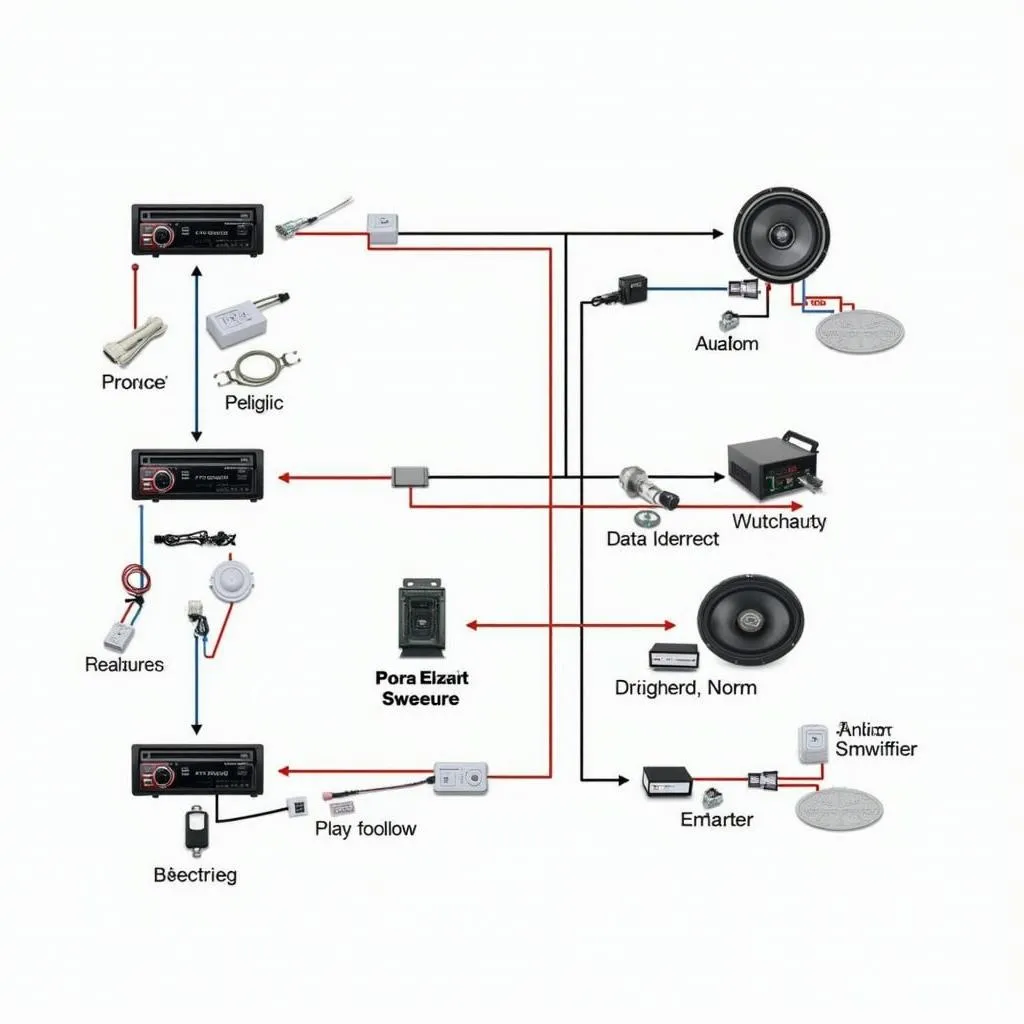You’re driving along and suddenly you see it – the dreaded brake pad warning light. Your heart sinks, and you immediately think, “This is going to cost me!”. But before you panic, one question pops into your head: will this pesky light actually cause my car to fail its MOT?
This article delves into the relationship between brake pad warning lights and the MOT test, equipping you with the knowledge to approach your next inspection with confidence.
Understanding the Brake Pad Warning Light
That illuminated symbol on your dashboard, often resembling an exclamation mark within a circle or parentheses, indicates a potential issue with your braking system. It could mean:
- Worn Brake Pads: This is the most common culprit. Brake pads have wear indicators designed to trigger the light when they reach a certain thinness.
- Low Brake Fluid: Brake fluid is essential for transmitting force when you press the brake pedal. A leak in the system can trigger the warning light.
- Faulty Brake Pad Sensor: In some cases, the sensor itself might be malfunctioning, illuminating the warning light even if the brake pads are fine.
The MOT and Your Brakes: A Vital Relationship
The MOT test is designed to ensure your vehicle meets the minimum safety and environmental standards for road use. Brakes are a critical safety component and undergo rigorous inspection during the MOT. Here’s what the testers look for:
- Brake Pad Thickness: They will visually inspect the brake pads to ensure they meet the minimum thickness requirement.
- Brake Disc/Drum Condition: Testers assess the brake discs or drums for excessive wear, scoring, or damage.
- Brake System Functionality: A brake efficiency test is performed to measure the overall performance of your braking system.
So, Will the Warning Light Itself Cause an MOT Failure?
Here’s the crux of the matter: the warning light itself will not directly cause an MOT failure. However, it serves as a glaring red flag that something within your braking system requires attention. If the underlying issue causing the light to illuminate affects the functionality or safety of your brakes, then your vehicle will fail the MOT.
Common Scenarios and MOT Outcomes:
Let’s examine some scenarios:
Scenario 1: Worn Brake Pads
- Warning Light: On
- Brake Performance: Reduced braking efficiency, potentially longer stopping distances.
- MOT Result: Likely Fail. Worn brake pads below the legal limit will result in an immediate failure.
Scenario 2: Low Brake Fluid
- Warning Light: On
- Brake Performance: Spongy brake pedal feel, potential for brake failure.
- MOT Result: Fail. A leak in the brake system is a serious safety hazard and will lead to an MOT failure.
Scenario 3: Faulty Sensor, Pads are Fine
- Warning Light: On
- Brake Performance: Normal
- MOT Result: Pass (but…). While the car might pass with a faulty sensor, it’s crucial to get this fixed immediately. A malfunctioning sensor could mean a genuine brake issue goes unnoticed later, putting you at risk.
Don’t Ignore the Warning!
The bottom line is this: while the brake pad warning light won’t directly fail your MOT, it’s a warning you should never ignore. Addressing the root cause of the light is crucial to ensure your safety on the road and increase the likelihood of passing your MOT.
FAQs about Brake Pad Warning Lights and MOTs:
Q1: Can I check the brake pads myself?
Yes, you can visually inspect your brake pads. However, it’s best to consult a qualified mechanic for a thorough inspection.
Q2: How much does it cost to replace brake pads?
The cost varies depending on your car make and model.
Q3: How often should I get my brakes checked?
It’s a good practice to have your brakes inspected at least once a year or as recommended in your car’s service schedule.
Q4: What other lights on my dashboard could cause an MOT failure?
Lights related to your engine management, airbags, seatbelts, tires, and headlights can all contribute to an MOT failure if they indicate a problem.
Remember, timely car maintenance is not just about passing an MOT, it’s about your safety and the safety of others on the road. If your brake pad warning light comes on, don’t delay – get it checked out by a professional.

